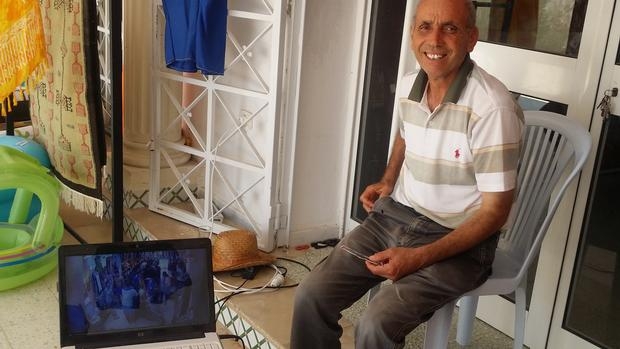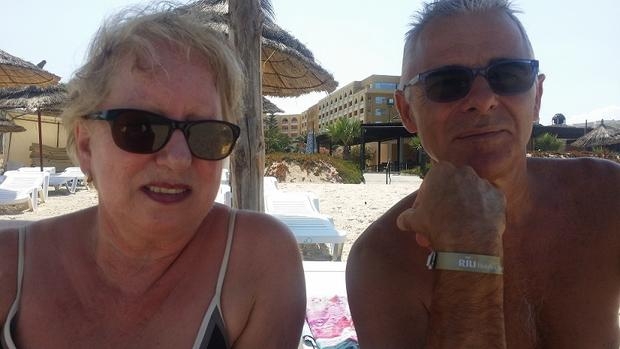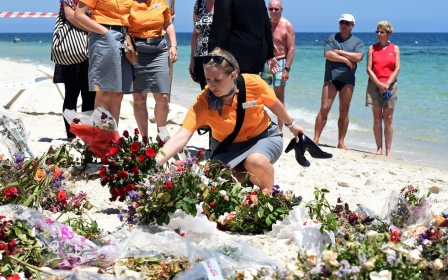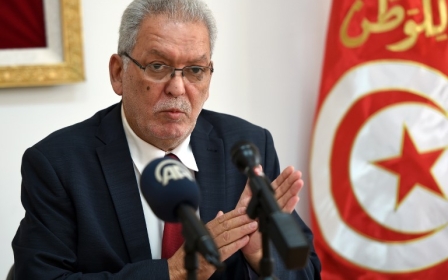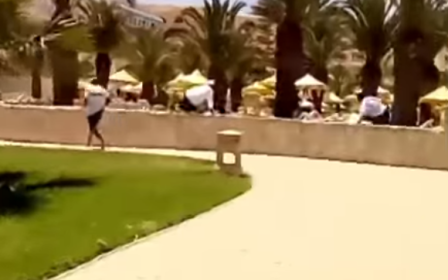Tunisia's ghost town of Sousse
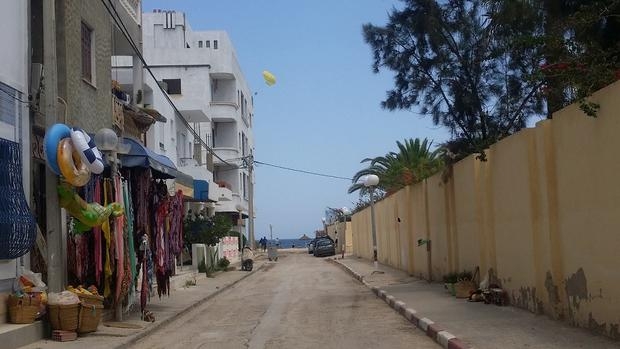
On the road that leads to the beach of the Hotel Imperial Marhaba in Port al-Kantaoui, the cafe signs evoke a gentle lifestyle geared towards tourism: Le Roméo et Juliette, Le Sorry Babushka, Le Monte Carlo and, along the roadside, a catering college and the Higher Institute of Tourism. In al-Kantaoui the message is clear: tourism and recreation rule.
Al-Kantaoui under surveillance
Before the attack, the port and marina were among the most sought-after resorts. Now entering al-Kantaoui is like visiting a ghost town. You occasionally see a few people walking around, sometimes even two or three tourists - the “revenants” (“ghosts”), as the traders in the centre of town have dubbed them.
To get to the scene of the tragedy, you now have to go through three police checks. The hotel is guarded by a dozen police officers working in three daily shifts. The neighbours of this five-star establishment, Le Bellevue Park and Le Soviva, have introduced similar security measures, including metal detectors and mirrors for examining under vehicles.
If you want to reach the beach without walking by the hotel, you have to take the route used by the killer, Seïfeddine Rezgui, who opened fire on around a hundred tourists on 26 June 2015 on the beach belonging to L’Imperial, as well as the swimming pool and the reception area. He then took this road and was shot there an hour later. You can still see the marks of the police bullets on the ochre walls.
Messages of gratitude
Around the corner are three shops run by Tunisians, one of whom is Salem Ben Youssef, a man in his 60s who stands watch on the pavement where beach items and trinkets are on display for tourists. He spends his whole day waiting there, waiting for tourists who will no longer come, waiting for the outcome of the investigation into the killer, waiting only to find out what the future holds for him. He goes on to Facebook and watches the videos of tourists and their messages of gratitude. Salem hid about thirty of them in his shop after they ran there when the first shots were heard.
“They came from the beach, I didn’t understand what was going on,” he told Middle East Eye. “We all went inside and I shut everything. The most terrifying moment was when the killer came down this road, we didn’t know whether he was going to keep on shooting.” Now Salem can go a whole day without selling anything. He doesn't know whether he is going to have to close his shop for good.
Beside him Ajmi Boubaker said that he hid several people as well. Both his shop sign and car have bullet marks, as do a stack of rubber rings and beach wraps, which are no longer of any use. “That represents losses of at least 1,000 dinars [about €450],” he said. While he talked to MEE, a Czech tourist walked by, a rare sight these days.
Dherbi is also traumatised. This Franco-Tunisian moved to Tunisia to open a shop 10 years ago. He couldn’t believe what was unfolding on the day of the attack. He heard Moncef, a worker from the house next door, throw a piece of pottery at the killer and shout insults at him from a top window. Then the shots resumed until Rezgui was killed. Moncef said he did nothing heroic, that he didn’t manage to stop the killer. Like everyone else he wondered what was going to happen now.
An almost deserted beach
The beach offers two scenes. To the left, there is life, with several Tunisians swimming; to the right, there are rows of empty beach umbrellas and deckchairs. The employees who look after tourists are all sitting on chairs on the sand, worn out by the heat and the sun. “We’ve said all we have to say, we’ve given enough witness statements, now all we can do is wait,” they said. They refuse to add anything further.
Behind them the water is clear, clean, perfect for swimming, but only one man is in it. It is Sahbi, the water sports manager from Hotel Imperial Marhaba. He says that before the attack he earned nearly 2,000 dinars (more than $1,000) per day for him and his team by renting out jet skis and other water equipment. His work in the summer used to cover him financially for the rest of the year.
Today he kills time chatting with the police officers who take their lunch break by the deckchairs. One of them agreed to talk to MEE on condition of anonymity. “Every year we are here and we spot the people passing by, but we only begin working here on 1 July, about 10 days after the attack.”
He is still astounded that the killer was able to keep firing for 45 minutes but he refused to blame his colleagues. “It’s a political problem, everything is centralised in Tunis and there was a communication issue with Sousse.
“There were more than 100 people on the beach that day and I hid about half of them as they fled to a building that I use for storing equipment,” said Sahbi, who showed MEE the bullet marks. He rubbed the sand beneath his feet and pointed to a small brown ball. “That’s dried blood,” he said. “We tried raking it off but we can’t get rid of it.”
Suddenly his face lit up. He has just spotted Franck, one of the only tourists in the Hotel Imperial Marhaba.
An act of solidarity
This Frenchman and his wife Patricia arrived two weeks ago. They did not want to cancel the booking they had made in May. The French Ministry for Foreign Affairs is one of the only ones not to have advised its citizens against going to Tunisia, unlike the British, for example. So Patricia and Franck came, as they do every year, and they are among the few customers at the hotel. “There are so many police officers that it would be difficult not to feel safe,” they said.
As far as they are concerned, their holiday has been transformed into an act of solidarity. “Tunisians often come to see us on the beach and ask us questions. It’s terrible because so many people feel guilty although it had nothing to do with them. Everyone feels involved. We are just a small rebuilding block, I hope others will come too.”
Guilt and anxiety
The psychiatrist Souhail Bannour detected this feeling of guilt among the hotel employees that he looked after. From his office in Farhat Hached Hospital in Sousse, he recalled the hours after the attack. “I arrived with colleagues to try to set up a crisis unit,” he said. “It was chaos, especially as no one knew whether it was over or not. We were not sure that the whole place had been secured.”
Most of the people who came to see him were suffering from shock. Some still come to see him now. “The general feeling was really of guilt,” he said. “Because the concept of hospitality is part of Tunisian culture. These Tunisians feel betrayed.”
The feeling goes beyond the secured area of Port al-Kantaoui. In the working-class district of Erriadh Market, for instance, all the traders say the same thing: “It’s a catastrophe,” especially for the economy.
“Everyone here has a family member who works in the catering industry or tourism sector; it is a heavy blow,” said Salah, a man in his 30s. His brother used to be a hotel bartender but has just lost his job because of the shortage of customers.
The economic losses are taking a toll. Makram Halloul, the marketing manager of Hotel Riadh Palms, which was the target of an aborted attack in 2013, described a disastrous state of affairs. “I had weeks that were 70 percent booked out and even some weekends that were overbooked,” he said. “But now we have only 150 guests in a hotel with 650 bedrooms.” He also had to lay off employees, cutting his workforce in the peak season from 400 to 200. He has also installed 96 security cameras, on top of the 100 he already had.
Security reinforcements
Even though the Ministry for the Interior deployed almost 1,000 extra officers to secure tourist areas, the Sousse attack exposed security flaws on several levels: for example, the time the killer was allowed to roam alone without being stopped and the lack of security on the beach.
The problem could get worse, according to Michael Ayarian, an expert with the International Crisis Group. On 23 July he published a report entitled “Reform and Security Strategy in Tunisia”. In it he referred to structural problems in the Ministry for the Interior and the lack of public security policies.
“Because with each new government, people change at the top positions and also in the lower ranks, there is no genuine overall strategy to fight terrorism, and that is before taking into account the numerous dysfunctions within the security forces,” he explained to MEE. The anti-terrorist brigade in Tunisia consists of just 150 men and there is only around 50 technical officers who handle investigations. “There are demonstrations of force but it is only the visible part; what is required is in-depth reform,” he added.
Today the government remains silent, as the spokesperson for the Ministry for the Interior has been sacked. There is a lack of information about the progress of the investigation. This is in addition to the new anti-terrorism law that was adopted on Friday 23 July. Very similar to the one that prevailed under Ben Ali, it may signal the lifting of the ban on the death penalty.
In mid-July false alarms triggered panic in Avenue Bourguiba in Tunis and on a playground in Sousse. The authorities fear attacks in big stores - a reminder that the terrorist threat does not only affect soldiers and tourists, but the whole Tunisian population.
This article is a translation from the French original
Middle East Eye propose une couverture et une analyse indépendantes et incomparables du Moyen-Orient, de l’Afrique du Nord et d’autres régions du monde. Pour en savoir plus sur la reprise de ce contenu et les frais qui s’appliquent, veuillez remplir ce formulaire [en anglais]. Pour en savoir plus sur MEE, cliquez ici [en anglais].


